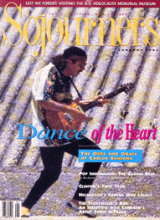INEVITABLY, all communities must deal with the disruptive personality. In most cases the problems that the difficult member presents to the collective remain fairly minor. Indeed it is usually the individual him or herself who feels most uncomfortable.
Live-in communities often have, for example, the unusually careless person who causes little uproars over lost eyeglasses, address books, or car keys in the midst of the group's daily comings and goings. Or for communities that function weekly or bimonthly, there is the rigid type who annoys the rest by insisting on absolute punctuality, unvarying meeting format, and all sorts of strictures regarding discussion processes.
We once had a community member who wanted a certain measuring cup brought back to the kitchen, insisting that the new glass one did not suit her. The trouble was that the old plastic cup now graced the washing machine and had absorbed detergent soap, rendering itself quite unfit for further kitchen duty.
Often these "square pegs" withdraw themselves from the more intense aspects of community life such as living with the group or assuming responsibility or leadership for the collective. If they participate at all in community it is usually more on the fringes. Their minor disruptiveness serves to remind them and the group that not everyone has a vocation to community.
OF GREATER concern - and far more serious consequences - are the truly obstructive types who join communities. Their personal needs go beyond what help the community can offer. They dominate every conversation and take over every meeting. Their never-ending, self-centered personal agenda becomes that of the collective; they form cliques, continually criticize the "others," and keep everyone in a state of increasing agitation.
Read the Full Article
